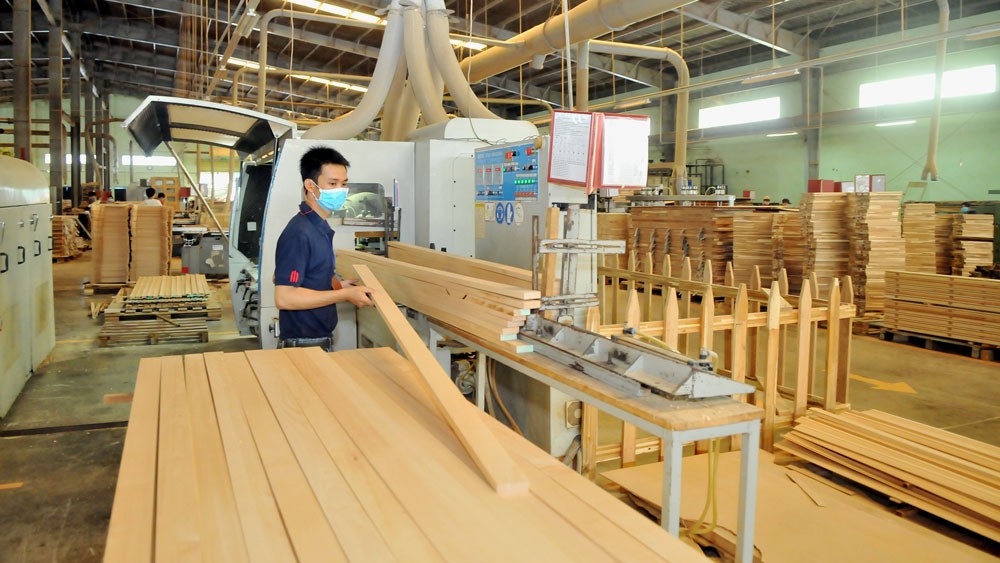U.S. market accounts for nearly 40 percent of Vietnam's wood export turnover
Society – Economy - Ngày đăng : 09:49, 10/07/2024

Speaking at the seminar, Vice President Ngo Sy Hoai of Vietnam Forestry and Wood Products Association (Viforest) said that Vietnam's wood industry is maintaining good growth. Vietnam is currently ranked 5th in the world in terms of total export value of wood and wood products. Vietnam is also ranked 2nd in the world (after China) in the export value of high value-added furniture product group including indoor and outdoor furniture.
According to Mr. Hoai, Vietnam currently exports wood to five main markets including the US, China, Japan, Korea and the EU. High logistics costs have been an obstacle for wood export enterprises partly due to bulky timber products.
Mr. Hoai cited the fact that currently, a container of wood products transported to the US has freight costs from US$7,000 to $8,000 meanwhile sometimes the value of wood products in a container is only equivalent to the above amount.
The Viforest representative also believes that green transformation in the logistics industry is one of the factors determining the success or failure of Vietnam's wood industry. Currently, wood businesses are actively inventorying greenhouse gas emissions to comply with emission regulations.
Meanwhile, talking about the greening of the logistics industry, Vice President Nguyen Quang Vinh of the Vietnam Chamber of Commerce and Industry (VCCI) said that green growth and sustainable development are an imperative, irreversible and common global trend in the present stage so the logistics industry must participate in the trend.
According to Vice President Nguyen Quang Vinh, green supply chain management is closely linked to the management of its links, including green design, green manufacturing, green operation, green procurement, green logistics, and waste management.
When these links are all green, businesses will be able to improve their production and operation capabilities, while at the same time forming a green and sustainable ecosystem around businesses; thereby, creating a competitive advantage and increasing firms' ability to adapt, resist and recover before market shocks.
